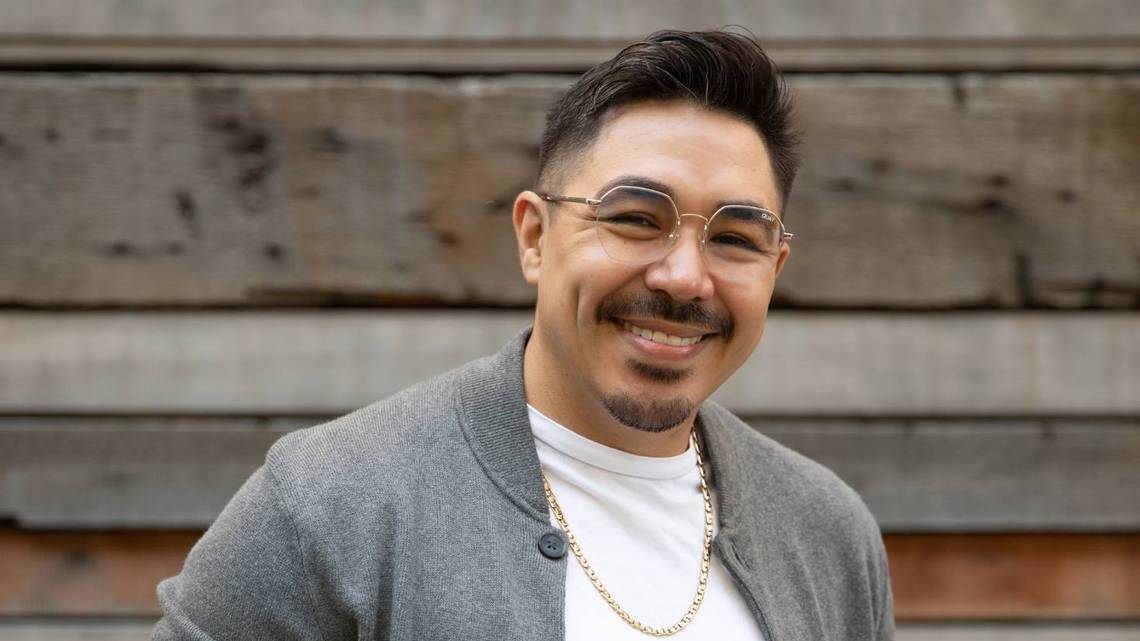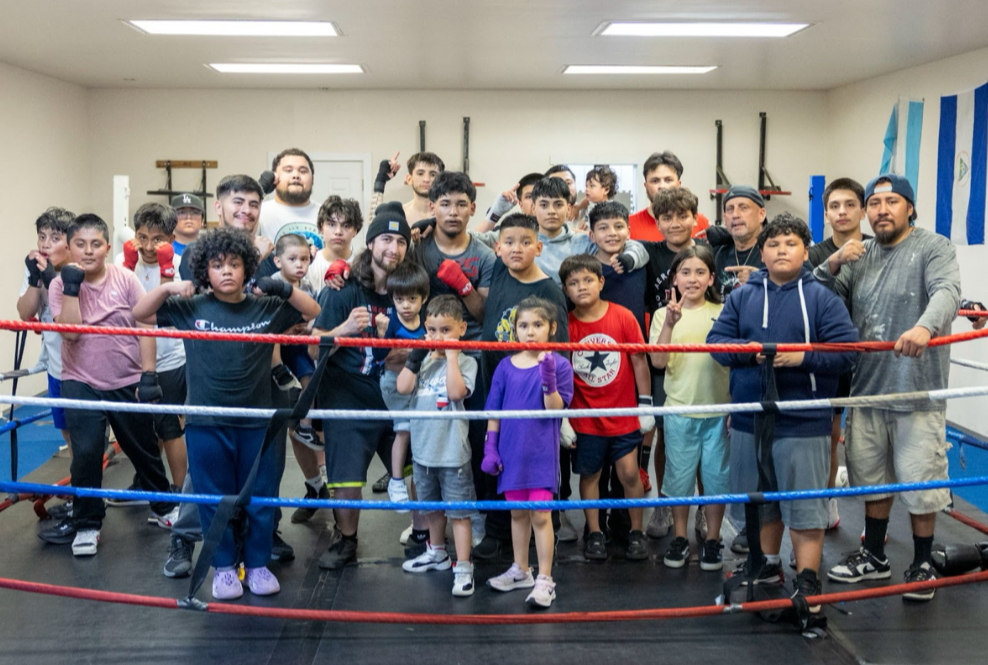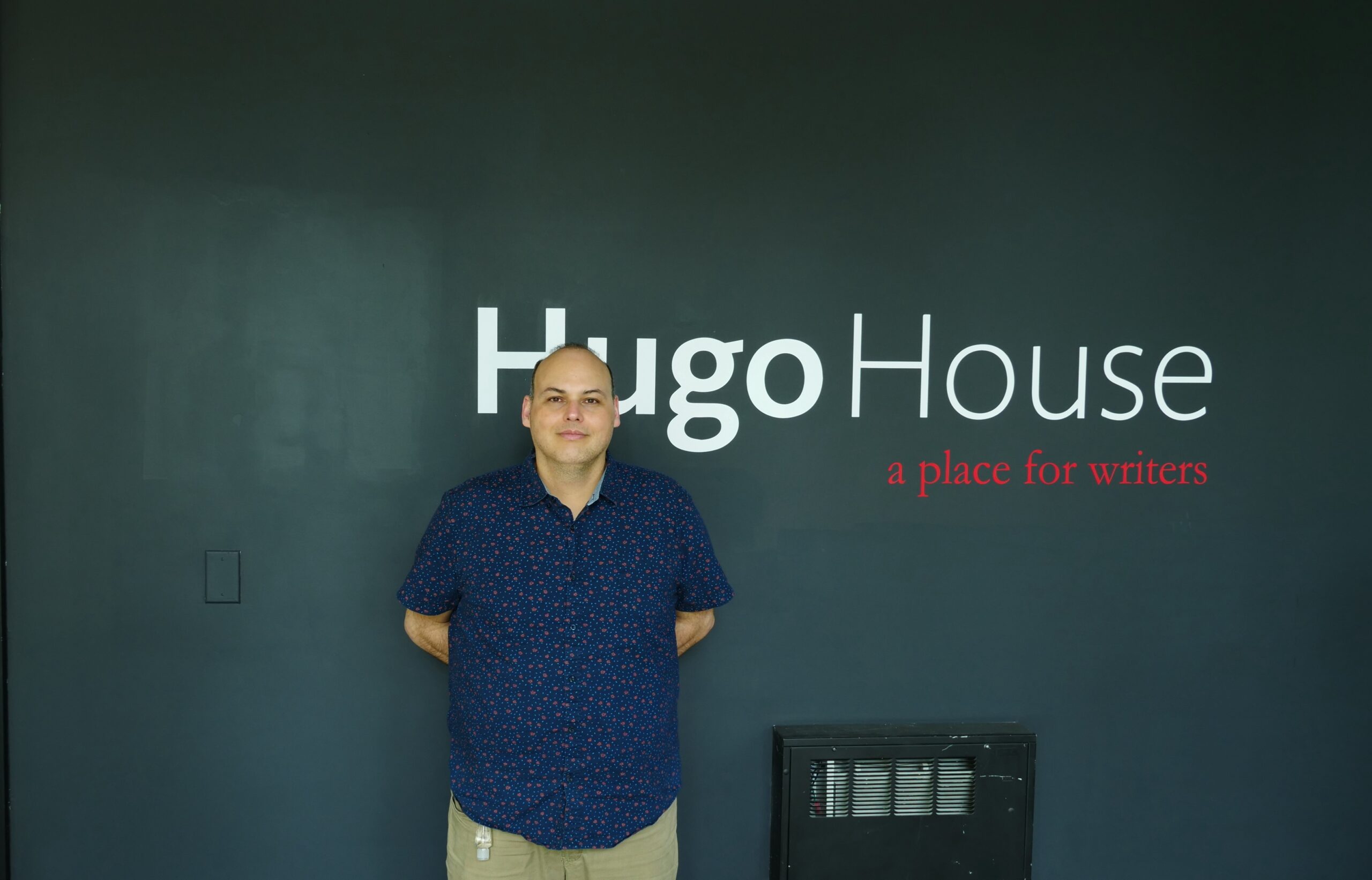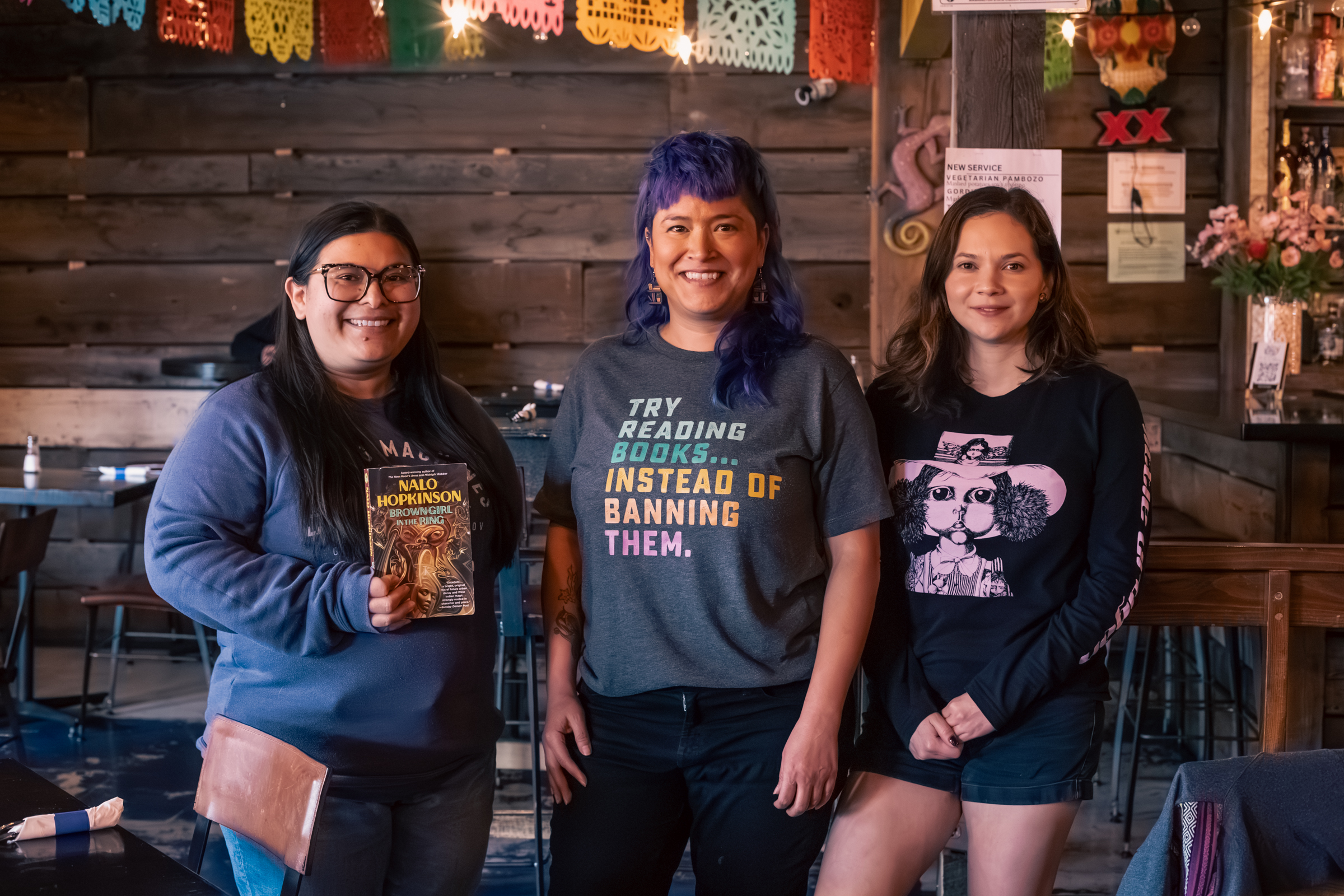Central and Eastern Washington have a long history of Latino farm workers not only migrating to each region in search of agriculture jobs, but of also settling down and starting families, according to the Latino Center for Health.
Although Latino farm workers make up a large part of the farm workers in Washington, they still seem to live in the shadows, and much of their life stories go untold. But now a poet who grew up among the farm workers in eastern Washington is helping to share their stories.
Ricardo Ruiz, 34, is a Mexican-American poet from Othello, Washington, who was raised by migrant parents. Like many others, they left their homes in Mexico and made the trek north to work. Ruiz won the Washington State Book Award for poetry for his book, “We Had Our Reasons”, that tells the stories of immigrant farm workers from Eastern Washington. He presented a reading of his book at the Parkland/Spanaway branch of the Pierce County Library in October 2023.
Ruiz said that when his parents first got to Washington, they both worked at the orchards before transitioning to the potato factories, which offered them a stable income. Although his parents had steady income from working at the factories, they struggled to make ends meet, so they worked in the fields on the weekends.
“On the weekends, we’d still go out and work in the fields, and that’s kind of where I grew up,” Ruiz said in an interview.
Ruiz said his parents worked very hard to give him and his siblings a good life, which meant 12-hour work days that did not leave much left over of their time or attention. Ruiz began hanging out with the wrong crowd and getting himself into trouble at an early age.
“I just started running around with the kids in the ‘hood. Like, that’s where I’m living and that’s who my associates are, the people who look like me, and I ended up getting into a lot of trouble,” Ruiz said. “I found drugs and alcohol at a young age, and, by the time that I was in high school, I was addicted to smoking weed.”
Ruiz said he also got into trouble because up until starting elementary school, he only spoke Spanish, and he struggled to learn to speak English, which also caused him issues with his personal identity. Ruiz was suspended from school during his senior year, so he made the decision to drop out and go work in the fields or factories. Ruiz said he met his first wife around that time, and he was just “trying to find my way between working and raising a family.”
Ruiz said he was still struggling with his addiction and was stealing money from one of his jobs to be able to feed his addiction. He was eventually fired. Ruiz made the decision to enlist in the Army to be able to provide for his family. Ruiz served in the Army for seven years and traded one addiction for another.
“I’ve been to Afghanistan a couple times. I’ve faced direct combat with the enemy. I’ve been blown up in an IED,” Ruiz said. ”I experienced that trauma and had PTSD from my experiences in combat, and though I was no longer using drugs when I was in the Army, but I started drinking a lot to deal with everything going on.”
Along with experiencing PTSD, Ruiz was still dealing with childhood trauma and unresolved identity issues. He could no longer hide behind his identity of being a soldier, which caused him to spiral out of control. Ruiz decided to enroll in community college and that is where a professor suggested that he express all of his feelings through poetry.
Becoming an award-winning poet
Ruiz said he began writing poetry in 2017, but he did not take an actual poetry class until 2019. He said the reason he loves poetry is because he get to do whatever he wants and doesn’t have to worry about grammar; something that he always struggled with growing up and that affected his confidence.
“As of right now, I still have that feeling of like, man, I gotta work extra hard to make sure it’s right, and I second guess myself and I don’t have that confidence even though I know what I’m doing,” Ruiz said.
Ruiz said he views himself as a “classical poet who remixes stuff.” Ruiz was classically trained at the University of Washington for his BA in creative writing.
He was exposed to many great writers during his time at UW, including William Wordsworth, an English romantic poet who wrote poetry for the common man. Ruiz said Wordsworth was the initial inspiration for his poetry book, “We Had Our Reasons.”
Ruiz won the Washington State Book Award in poetry this year for “We Had Our Reasons,” his first ever poetry book. The award honors “works of outstanding literary merit by Washington authors,” according to the Washington Center for the Book website.
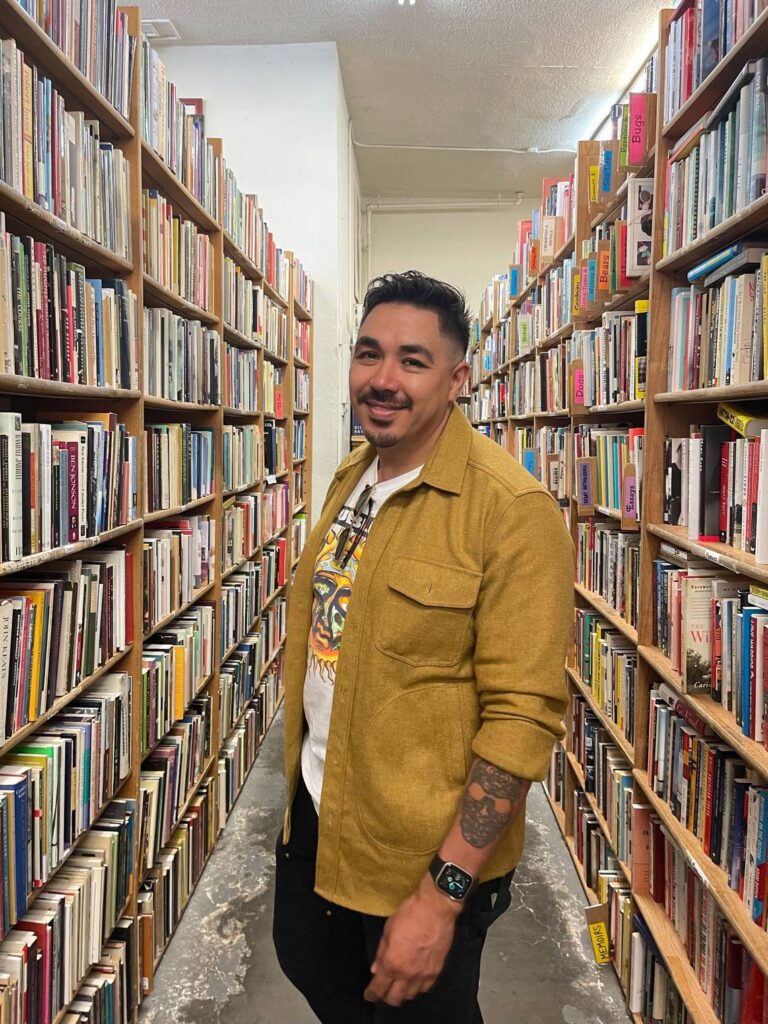
The making of “We Had Our Reasons”
Ruiz said that he decided to write “We Had Our Reasons” because of and for his kids. He wanted to write a book for them that documented the migrant farm worker experience, their hardships and their reasons for coming to the United States, including his own parents’ stories.
“[My kids aren’t] at the point where they’re going to be doing this identity work and really thinking about who they are and and how they fit into the greater world, so what I wanted to do was kind of go and record these stories for them,” Ruiz said.
Ruiz said that since the book was meant to be for his children, the poems are short in length, but hold a lot of emotion.
“I wanted it to be an emotional and powerful experience that the reader has, but then, as you read the collection as a whole, be it page to page or if you follow the story of an individual or the story of a family, it it creates a different experience,” Ruiz said.
The book includes voices from different generations and different perspectives about their experiences in Eastern Washington. The voices are those of immigrant farm workers, the children of the farm workers, even the voice of an ICE agent who works in the community that he grew up in.
Ruiz said that he wanted to interview his parents not only for the book but also for himself. He wanted to know more about them and why they chose to leave Mexico – something they never talked about. Ruiz said that “because of my own fear and impostor syndrome, I would always say, ‘I’m gonna interview my parents last because they were the hardest one for me to interview,’” but his father died before he was able to hear his story, and he decided to not interview his mom as she grieved the loss of her lifelong partner.
Ruiz spoke with 18 farm workers over the course of three years who he said trusted him enough to share their life story because he had already established relationships with them.
“A couple of the of the storytellers, you know, I’ve known for upwards of 20 years, and those pre-established relationships allow that trust to happen, and they know that like I’m not some outside journalist who’s just going to come in and legitimately take these stories from the community because I am a member of the community,” Ruiz said.
Since the interviews were all conducted in Spanish, Ruiz felt that it was important to translate his book to Spanish and to keep both versions in one book because “true equality is allowing these stories to live in the community first and foremost.”
Ruiz said writing this book helped heal a part of him and it also helped reassure him of his identity as a Mexican-American.
“It really did learn so much about who I am through the experiences of others and really just healed me so much,” Ruiz said. “The healing process is ongoing as I hear stories about how this work has impacted others.”
Cover Photo: Ricardo Ruiz
Publisher’s Notes: Washington Latino News (WALN) and The News Tribune are partners in best serving the public. This article was first published as “He was once a high school dropout. Today he is one of Washington’s award-winning poets” in The News Tribune, and was republished with permission.
